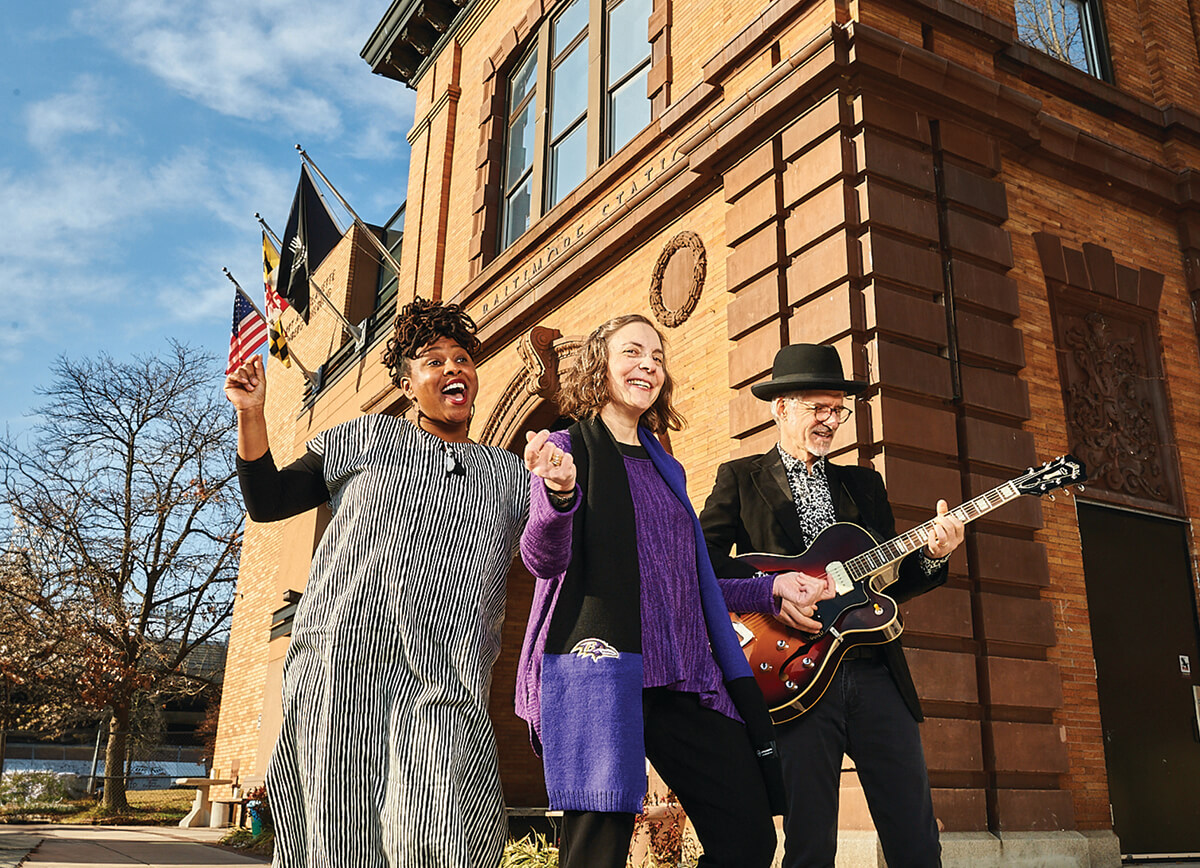Arts & Culture
Our Joyful Noise Offers Happiness and Healing Through Music
The local nonprofit sends its performers to spaces where they can do the most good.

It’s an unseasonably warm day in January and three musicians from Our Joyful Noise Baltimore (OJN for short) are posing for a photo in front of The Baltimore Station, a residential and outpatient treatment facility for veterans near Federal Hill.
There’s founding executive director Maria Lambros, also a violist and on the chamber music faculty at the Peabody Conservatory, as well as married performers Dan and Claudia Zanes (she sings and plays a variety of instruments; he mostly sticks to guitar and harmonica). They’re not here to give a concert—although the latter two do break into an impromptu performance of “Don’t Get Around Much Anymore.” A few of the vets have gathered to watch. They clearly know the musicians—and love them.
“Y’all playing for us today?” one asks hopefully. “Not today,” Lambros says, but promises they’ll be back later this month. “She has the most beautiful voice I’ve heard,” one veteran says of Claudia. Another vet spontaneously gives Lambros a hug.
The nonprofit organization, officially formed in 2018 by Lambros, has many more musicians than this—it’s a rotating group of dozens of ensembles and individuals that include classical, jazz, R&B, rock, world music, folk, gospel, and blues, you name it. And they perform in spaces where they can do the most good.
Currently, there are eight programs that serve eight distinct groups: women facing incarceration, autistic children and their families, cancer patients, veterans experiencing homelessness, seniors with disabilities, patients with Alzheimer’s and other memory issues, and youth and adults in the Franklin Square neighborhood in West Baltimore.
The idea, says Lambros, is to “bring everyone together in a very human way. Our aim is not to educate or to build audiences. Our aim is to really make a heart-to-heart connection between the musicians and the audience.”
Says Kim Callari, executive director of The Baltimore Station, “OJN has been a lifesaver for us.”
Notably, there’s no barrier between the musicians and the audience at an OJN concert. Participation—in the form of singing and dancing—is encouraged. (This is particularly meaningful at the concerts for autistic children. Wrote one enthused mom to OJN: “I started to cry when I read the words in big letters at the top, ‘All behaviors welcome here…ENJOY!’”)
The concerts are all free and while the musicians do get paid for their work, it’s become a mission for them as well.
“We just want to be useful,” says Dan Zanes. “We’re living our purpose.”